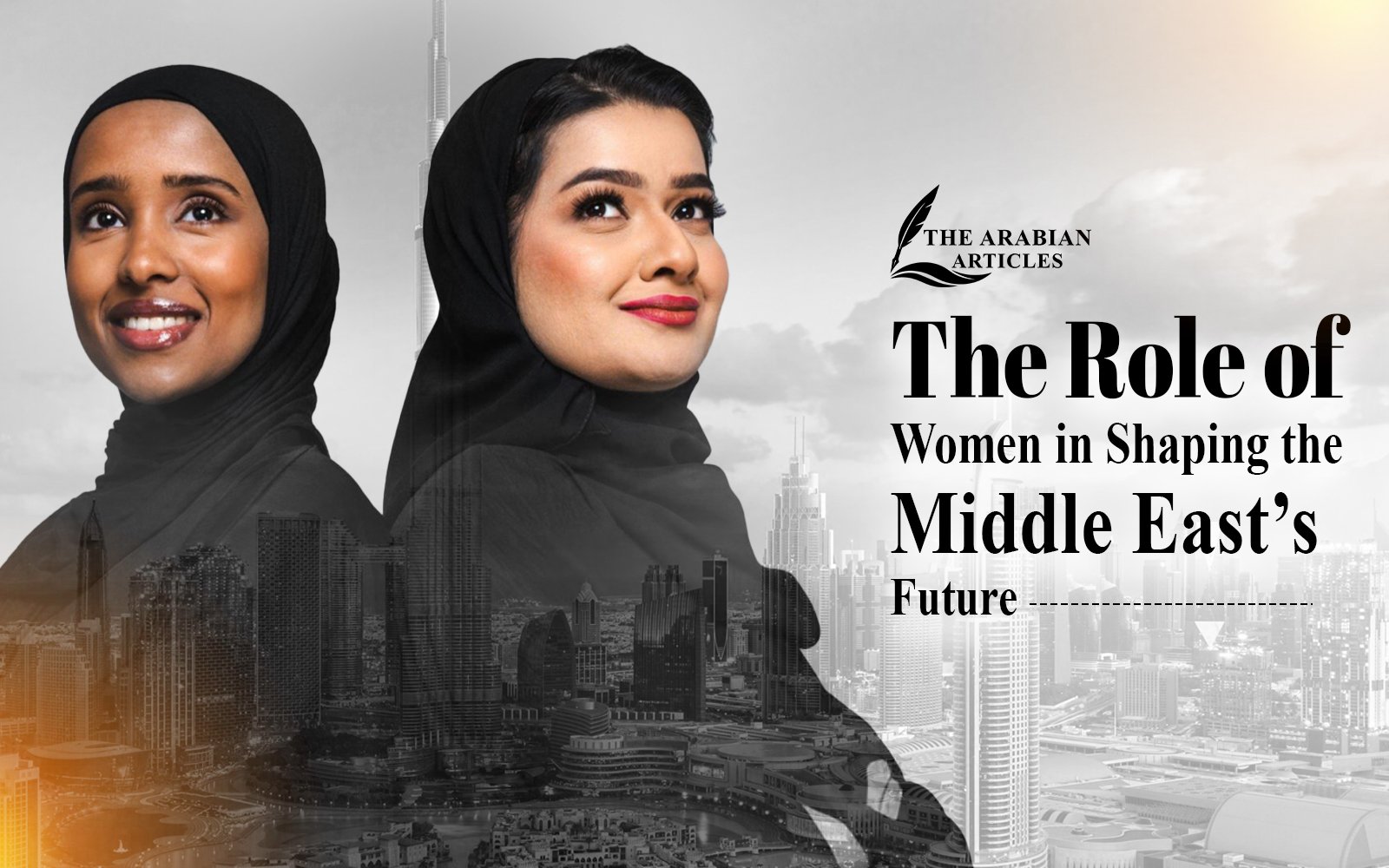The Middle East is going through big changes. One of the most powerful forces behind these changes is the growing role of women. From education to business, and from politics to technology, women are now leading in many areas of life. The role of women in the Middle East is not only important today but also key to the region’s future.
This article will explore how women are reshaping the Middle East and why their involvement is critical for progress and development.
Women Empowerment in the Middle East is Growing

In the past, many women in the Middle East faced limits on education, careers, and freedom. But today, the situation is changing. Women empowerment in the Middle East is stronger than ever.
Governments are making new policies to support gender equality. In countries like the United Arab Emirates, Saudi Arabia, and Qatar, more girls are finishing school and attending universities. In fact, in some places, women now make up more than half of the college students.
This progress has helped women become more confident and involved in different industries like science, technology, health, and finance. As women gain skills and knowledge, they are also helping to improve their communities and economies.
Breaking Traditional Gender Roles in Middle East Culture
The Middle East has a rich and deep culture. Traditionally, gender roles in Middle East culture gave men more freedom and leadership roles, while women were expected to stay at home. But today, these ideas are changing.
More families are encouraging their daughters to work, travel, and follow their dreams. Women are now working as doctors, engineers, teachers, journalists, and even government ministers.
Popular figures like Amal Clooney, a human rights lawyer with Middle Eastern roots, are inspiring women across the region. Women in countries like Lebanon, Egypt, and the UAE are becoming role models and leaders, showing that culture can change with time.
Education is Empowering the Future of Middle Eastern Women
Education is one of the biggest tools for change. Across the Middle East, more girls are attending school than ever before. Countries like Qatar, Jordan, and the UAE are investing in female education.
In universities, women are studying fields like engineering, medicine, law, and computer science. These subjects were once mostly studied by men. Now, women are using their education to build successful careers and lead important projects.
Many schools and organizations are also offering leadership programs, internships, and scholarships just for young women. These efforts are helping to build a strong future for the entire region.
Women Leaders in the Middle East Are Making a Difference
In recent years, the number of women leaders in the Middle East has grown. These women are holding powerful positions in government, business, and education.
Some examples include:
- Sheikha Lubna Al Qasimi, the first female minister in the UAE
- Reem Al Hashimy, Minister of State for International Cooperation in the UAE
- Razan Al Mubarak, President of the International Union for Conservation of Nature
- Haifa al-Mogrin, Saudi Arabia’s ambassador to UNESCO
These leaders are not only doing their jobs well but also opening doors for the next generation of women. They show that leadership is not just for men and that women can help make important decisions for their countries.
Economic Growth and the Role of Women in the Middle East
Allowing women to work and start businesses helps the economy grow. Experts say that if more women join the workforce, the Middle East could see a huge rise in its income and productivity.
Today, many women are opening their own businesses in areas like fashion, tech, education, and food services. Governments and private companies are offering grants, training, and mentorship to support female entrepreneurs.
Programs like She Wins Arabia and Womena are helping women build their business ideas and connect with investors. This not only helps individual women succeed but also creates jobs and strengthens local economies.
How Technology Is Helping Women in the Middle East
Technology is giving women in the Middle East new ways to learn, grow, and connect. Social media, online learning, and mobile apps are helping women speak up and share their stories.
Women are using platforms like Instagram, YouTube, and LinkedIn to build businesses, teach skills, and spread awareness. Some are creating apps for health, parenting, and safety that are designed especially for women.
Young girls are also learning how to code, build websites, and create content. This digital shift is helping more women become part of the future economy.
Legal Reforms Are Supporting Women’s Rights
Many countries in the Middle East are changing laws to support gender equality. In Saudi Arabia, for example, women can now drive, travel alone, and open their own businesses without needing permission from a male guardian.
In the UAE, new laws protect women from discrimination at work and offer more rights in marriage and family matters. These changes are helping women feel safer and more respected.
These legal reforms are also improving the image of the Middle East in the global community, showing that progress is possible when both men and women are treated fairly.
What Challenges Do Women Still Face?
Even though progress has been made, women in the Middle East still face some challenges. In many places, there are still gaps in pay, job opportunities, and political representation.
Some traditional beliefs and social expectations make it hard for women to take leadership roles or work in certain fields. In rural areas, many girls still struggle to get a good education.
To keep moving forward, there needs to be continued support from families, communities, and governments. Changing old ideas takes time, but with continued effort, the future looks bright.
The Future Belongs to Women in the Middle East
The role of women in the Middle East is more important now than ever. With better education, new laws, and growing opportunities, women are helping to shape the region’s future.
They are building businesses, leading countries, and creating new ideas. They are proving that change is not only possible but already happening.
By supporting the progress of women, the Middle East can become more balanced, successful, and hopeful for the generations to come.
READ MORE-
Green Visionaries: Thought Leaders Driving Sustainability in the Middle East
The Youth Factor: How Young Leaders Are Redefining Business Values in the Gulf







